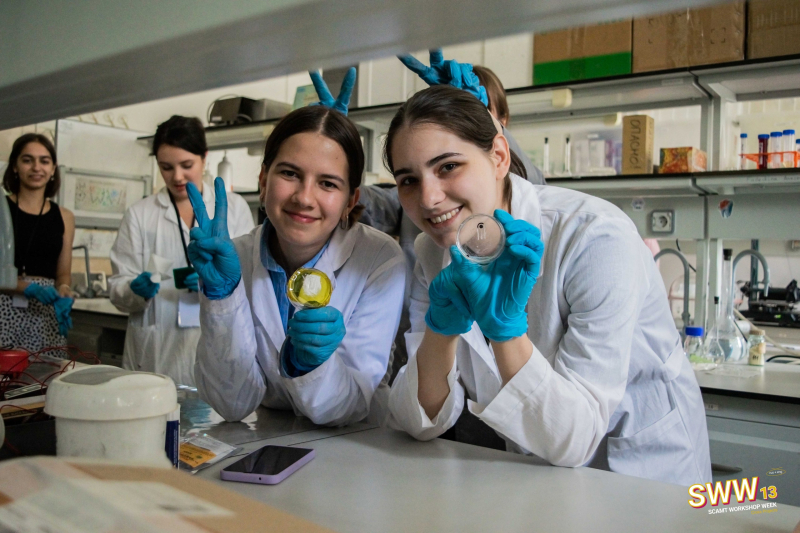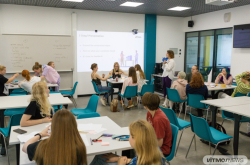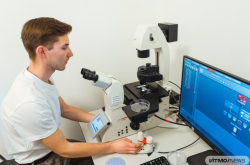SCAMT Workshop Week (SWW) is a research-driven school for students of all levels held twice a year at ITMO’s ChemBio Cluster. In the course of a week, its participants attend lectures and workshops in Russian and English, brushing up on their soft skills while developing projects within one of three tracks: research (lab work), industrial (development of startups and industrial solutions), or digital (interdisciplinary studies at the intersection of IT, chemistry, and biology). At SWW, students get to work with professional equipment, including a scanning electron microscope and chromatographs, on their own.
At the end of the event, students can opt to continue their research at ITMO by doing an internship at SCAMT Institute. There, they get the opportunity to turn their research into a publication or investment proposal, as well as to enroll in an ITMO Master’s program without exams.
Among the workshop’s partners are ITMO’s Advanced Engineering School, as well as the companies SkyGen and Blastim.
This year, SWW received 173 applications, selecting 42 participants from 11 Russian cities, including Ufa, Chelyabinsk, Kazan, Moscow, Novosibirsk, Rostov-on-Don, and others. At the school, students worked on an assortment of projects ranging from flexible sensors and a platform for neonatal screening to a machine learning model that can predict beer types based on their taste. This was the first time that the school was held as an advanced professional education program, with all participants receiving special certificates at the end. Read on to learn more about some of the school’s projects.
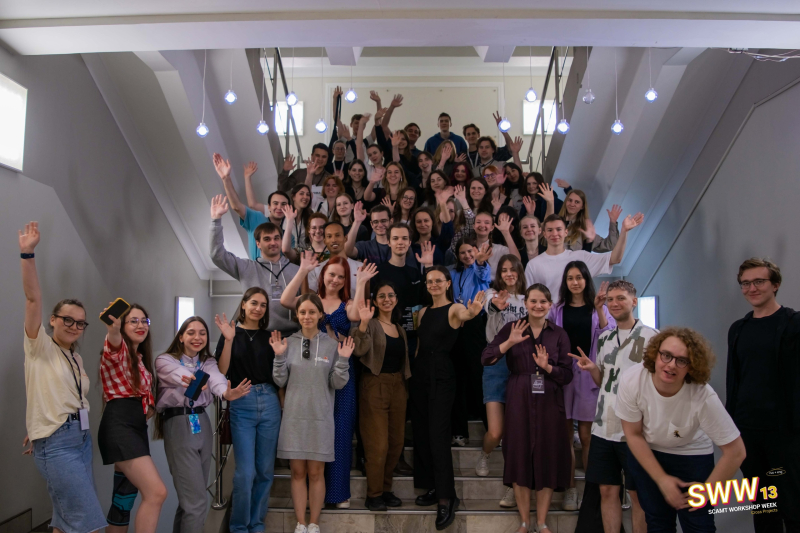
13th SCAMT Workshop Week 2024. Photo by Daria Baryshnikova / SCAMT
Project: Magnetic composite materials with flexible electronics for bioengineering
Eseniya Antipova, a fourth-year Bachelor’s student of biochemistry, Voronezh State University
During my research, I learned about the capabilities of flexible electronics and magnetic composites, which can potentially be applied in bioengineering. For this, we synthesized magnetic composites, studied their qualitative composition and tested them, and explored the application of flexible electronics. We also tested a prototype of a soft magnetic robot that can track indicators of its environment. The results of the study can be used to control platforms with magnetic cilia for fluid transfer – this will help automate laboratory analysis.
At SWW, I was looking to learn how research is done at other universities and what other scientists in my field are working on. I enjoyed ITMO’s spacious labs. Another great thing is that there was a lot of time for networking at the school – I’ve met some cool people and felt motivated to study scientific English.
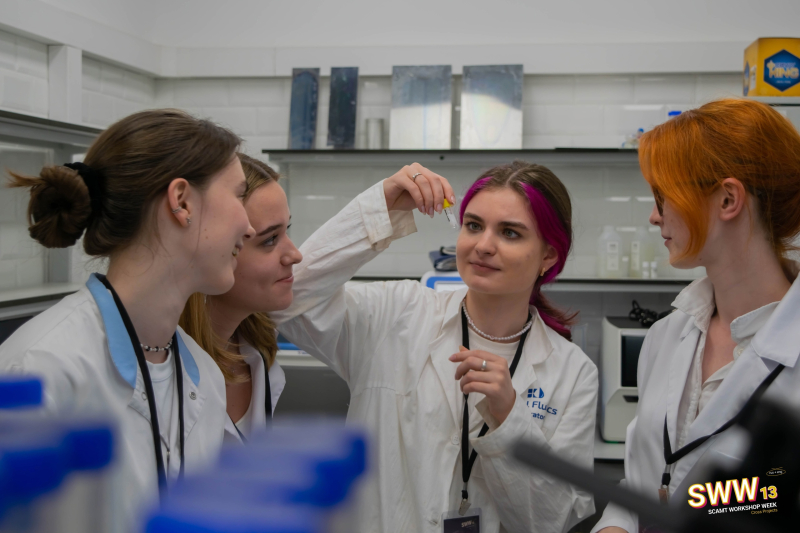
13th SCAMT Workshop Week 2024. Photo by Daria Baryshnikova / SCAMT
Project: Predicting “style” and type of beer based on its taste description
Stepan Druzhininskyi, a third-year student of biotechnology, ITMO
As a first-year, I learned about SCAMT Workshop Week from my friends who took part in the school. My project was about predicting the “style” and type of beer based on its taste description. I picked it from among others because I was interested in AI applications for chemistry and biology, and I want to work in machine learning in the future. At SWW, we were working with a large database of beer taste descriptors. Based on this data, we built a machine learning model that can be used to develop a service for choosing a drink that best matches a user’s taste preferences. Thanks to the school, I improved my data analysis skills and learned to negotiate and better communicate with my colleagues.
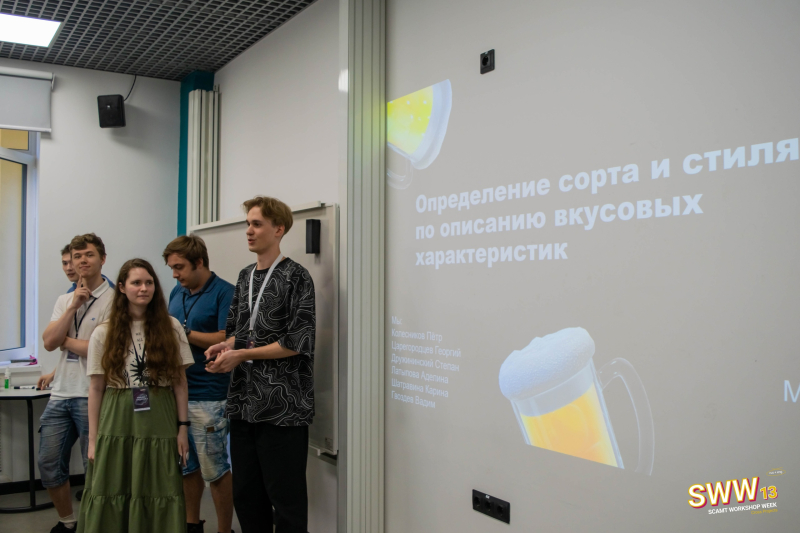
The defense of the project Predicting “style” and type of beer based on its taste description. Photo by Daria Baryshnikova / SCAMT
Project: Development of anti-cancer DNA nanorobot
Anastasia Aprelkova, a fourth-year student of biotechnology, Peter the Great St. Petersburg Polytechnic University
My primary reason for joining the workshop week was the desire to enroll in a Master’s program at ITMO, and my project of choice was Development of anti-cancer DNA nanorobot. At the workshop, we assembled a DNA nanobot capable of not only diagnosing but also treating cancer by selectively killing only cancer cells. Our solution can be adapted for any type of cancer, cancer marker, or viral disease. First, we tested the three parts that make up the DNA nanobot separately, and next we will be assembling them together. At the workshop, I polished my academic English and communication skills; it was great to learn to communicate the idea of your project to a wider audience.
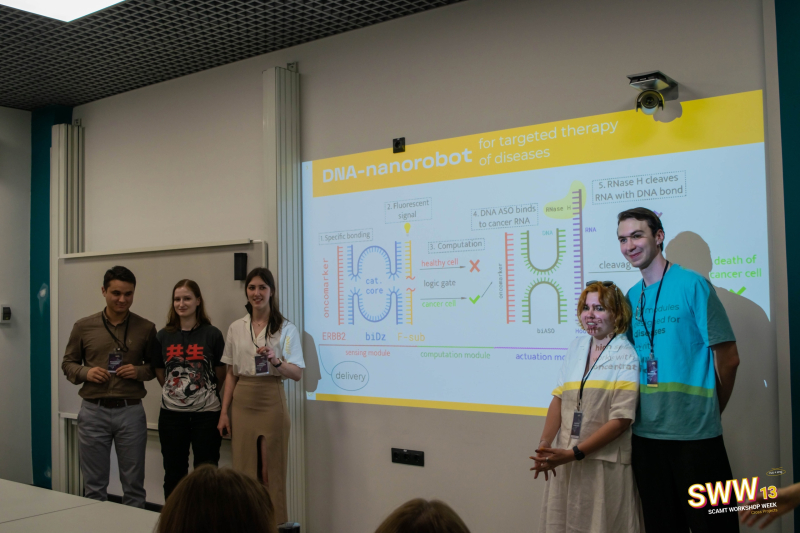
The defense of the project Development of anti-cancer DNA nanorobot. Photo by Daria Baryshnikova / SCAMT
Project: Development of bacterial cellulose-based hemostatic material
Tikhon Kurochkin, a fourth-year Bachelor’s student of chemistry, Novosibirsk State University
For my project at SWW, I chose one on bacterial cellulose – I was drawn by its topic. In the project, we studied cellulose as a hemostatic material: how it absorbs blood and what properties it has in this regard. It turned out that the material absorbs blood well and interacts with it, unlike commercial hemostatic powders. Fibroblasts grow on cellulose, so it does not need to be removed from a wound and can be used as an intraoperative material. In the future, our project can help develop a technology or a tool for more effective wound healing and bleeding control. At the school, I worked with a cell culture and a scanning electron microscope for the first time. I valued the chance to learn to see the project from a wider perspective and understand how we can commercialize it in the future as we developed its business roadmap.
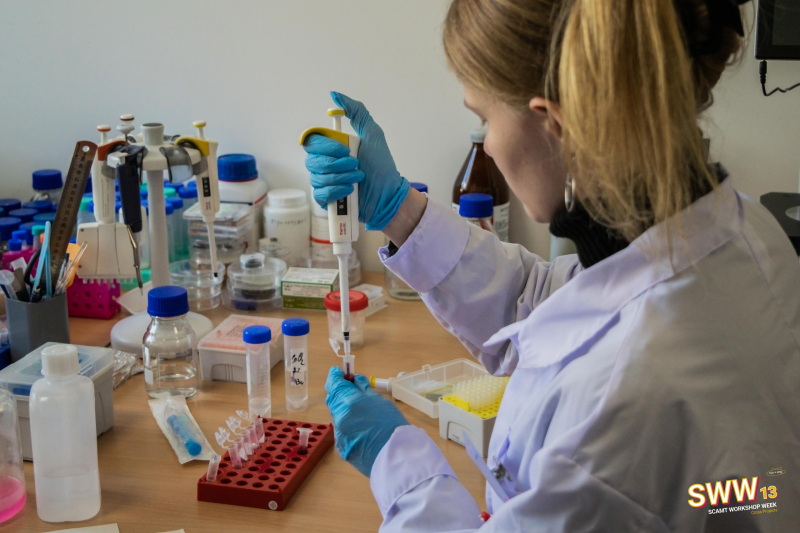
SCAMT Workshop Week 2024. Photo by Daria Baryshnikova / SCAMT
How to join SCAMT Workshop Week 2025
The school welcomes participants from Russian and international Bachelor’s, Master’s, and PhD students. Interested applicants must submit an application complete with a CV and a letter of motivation. The CV should include the applicant’s education (specialization, university, graduation date, and degree), work experience, completed advanced professional education courses, research interests, as well as experience of participating in grants, conferences, or research publications, and any skills that can contribute to their work at SCAMT. In the letter of motivation, applicants should explain why they decided to apply to the school, which project they would like to work on and why, which hard and soft skills will help them at the workshop, and how they will benefit from this experience.
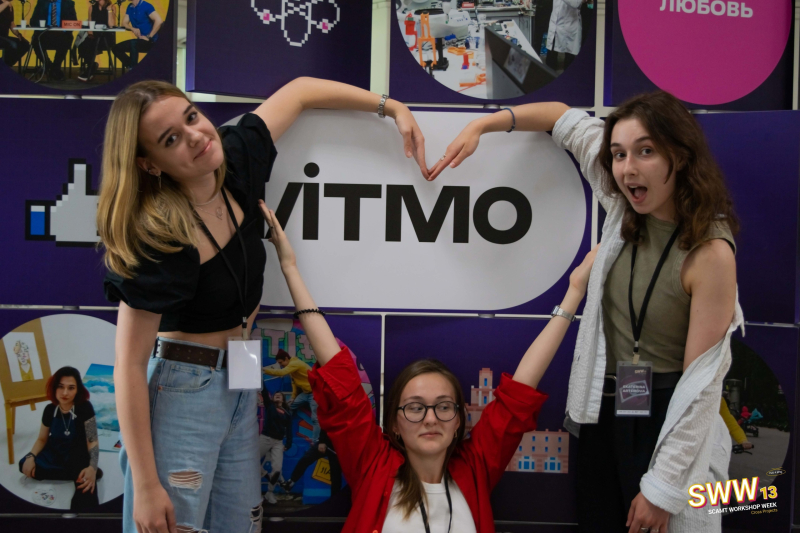
13th SCAMT Workshop Week 2024. Photo by Daria Baryshnikova / SCAMT
The next SWW will be held in winter 2025. Follow SCAMT on VK and Telegram so as not to miss the announcement.
